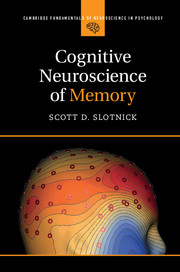Book contents
- Frontmatter
- Dedication
- Epigraph
- Contents
- List of Figures
- Preface
- 1 Types of Memory and Brain Regions of Interest
- 2 The Tools of Cognitive Neuroscience
- 3 Brain Regions Associated with Long-Term Memory
- 4 Brain Timing Associated with Long-Term Memory
- 5 Long-Term Memory Failure
- 6 Working Memory
- 7 Implicit Memory
- 8 Memory and Other Cognitive Processes
- 9 Explicit Memory and Disease
- 10 Long-Term Memory in Animals
- 11 The Future of Memory Research
- Glossary
- References
- Author Index
- Subject Index
- Plate section
- References
10 - Long-Term Memory in Animals
Published online by Cambridge University Press: 28 May 2018
- Frontmatter
- Dedication
- Epigraph
- Contents
- List of Figures
- Preface
- 1 Types of Memory and Brain Regions of Interest
- 2 The Tools of Cognitive Neuroscience
- 3 Brain Regions Associated with Long-Term Memory
- 4 Brain Timing Associated with Long-Term Memory
- 5 Long-Term Memory Failure
- 6 Working Memory
- 7 Implicit Memory
- 8 Memory and Other Cognitive Processes
- 9 Explicit Memory and Disease
- 10 Long-Term Memory in Animals
- 11 The Future of Memory Research
- Glossary
- References
- Author Index
- Subject Index
- Plate section
- References
Summary
Learning Objectives
• To identify the regions of the medial temporal lobe that are associated with item memory, context memory, and binding item information and context information in rats, cats, and monkeys.
• To understand how long-term potentiation links cortical regions to the hippocampus.
• To compare the brain regions that have been associated with memory replay in rats and the brain regions associated with episodic memory in humans.
• To detail the paradigms that have been used to uncover time cells in the hippocampus of rats and monkeys.
• To describe one type of behavioral evidence and one type of brain evidence that indicates mammals have episodic memory.
This book is on the cognitive neuroscience of memory, so why is there a chapter on animal memory? One reason is that the same brain processes associated with memory in animals are often associated with memory in humans. These can be considered core brain processes that mediate memory across species. A second reason is that certain techniques can be used only on animals, such as targeted single-cell recording and brain lesions. The results of such techniques offer a detailed view into the brain mechanisms underlying memory that is not available in humans. This chapter focuses on long-term memory in animals, which relates to the large majority of research conducted with humans. Section 10.1 shows that rats, cats, and monkeys have a medial temporal lobe organization that is the same as humans. The perirhinal cortex is associated with item memory, the parahippocampal cortex is associated with context memory, and the hippocampus is associated with binding item information and context information. In section 10.2, long-term potentiation in the hippocampus is discussed, which is the mechanism by which cortical regions link to the hippocampus. Section 10.3 reviews evidence for memory replay in rats, which refers to reactivation of the same brain regions in the same or the reverse temporal sequence that were activated during a previous event.
- Type
- Chapter
- Information
- Cognitive Neuroscience of Memory , pp. 196 - 218Publisher: Cambridge University PressPrint publication year: 2017



